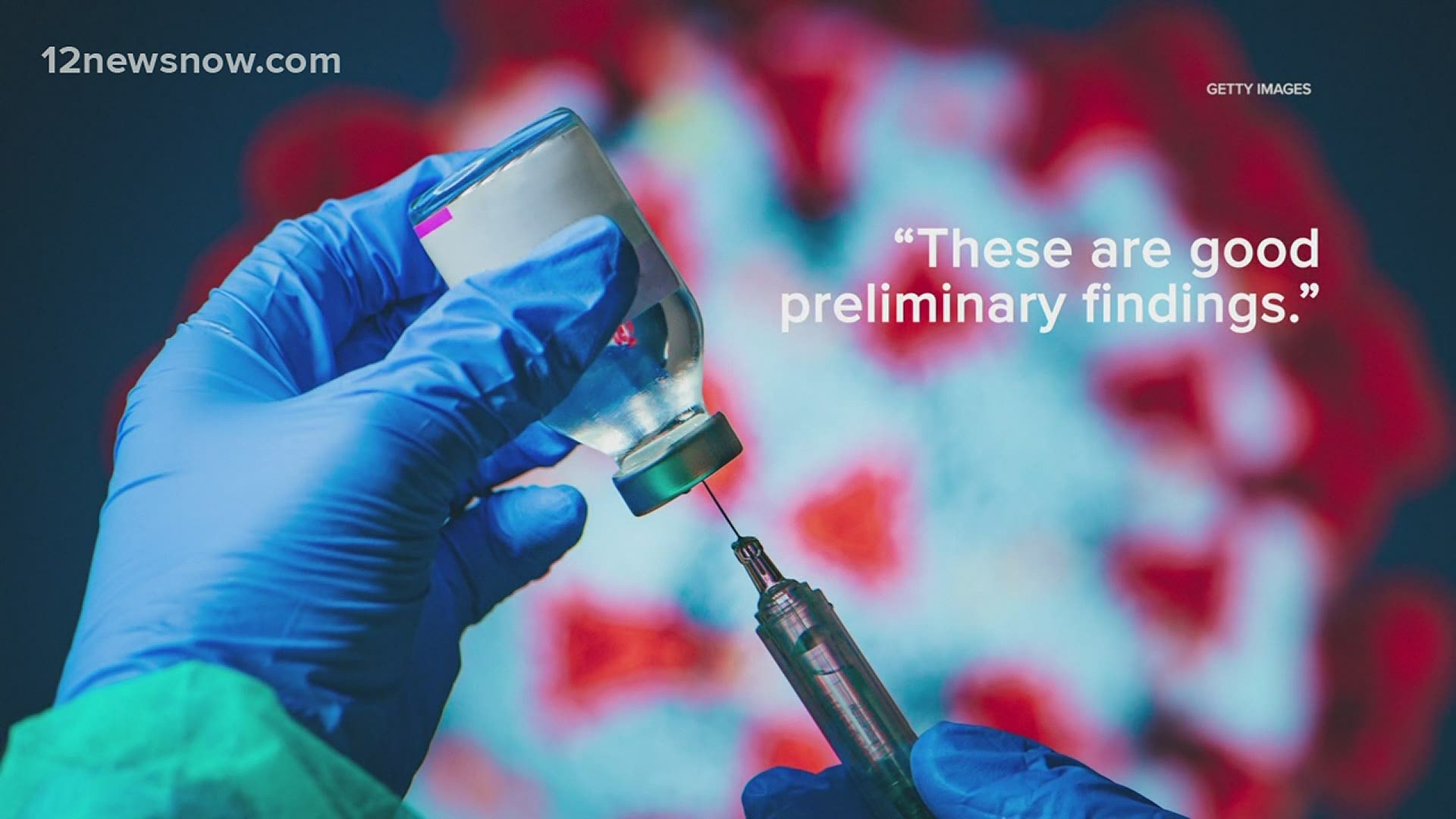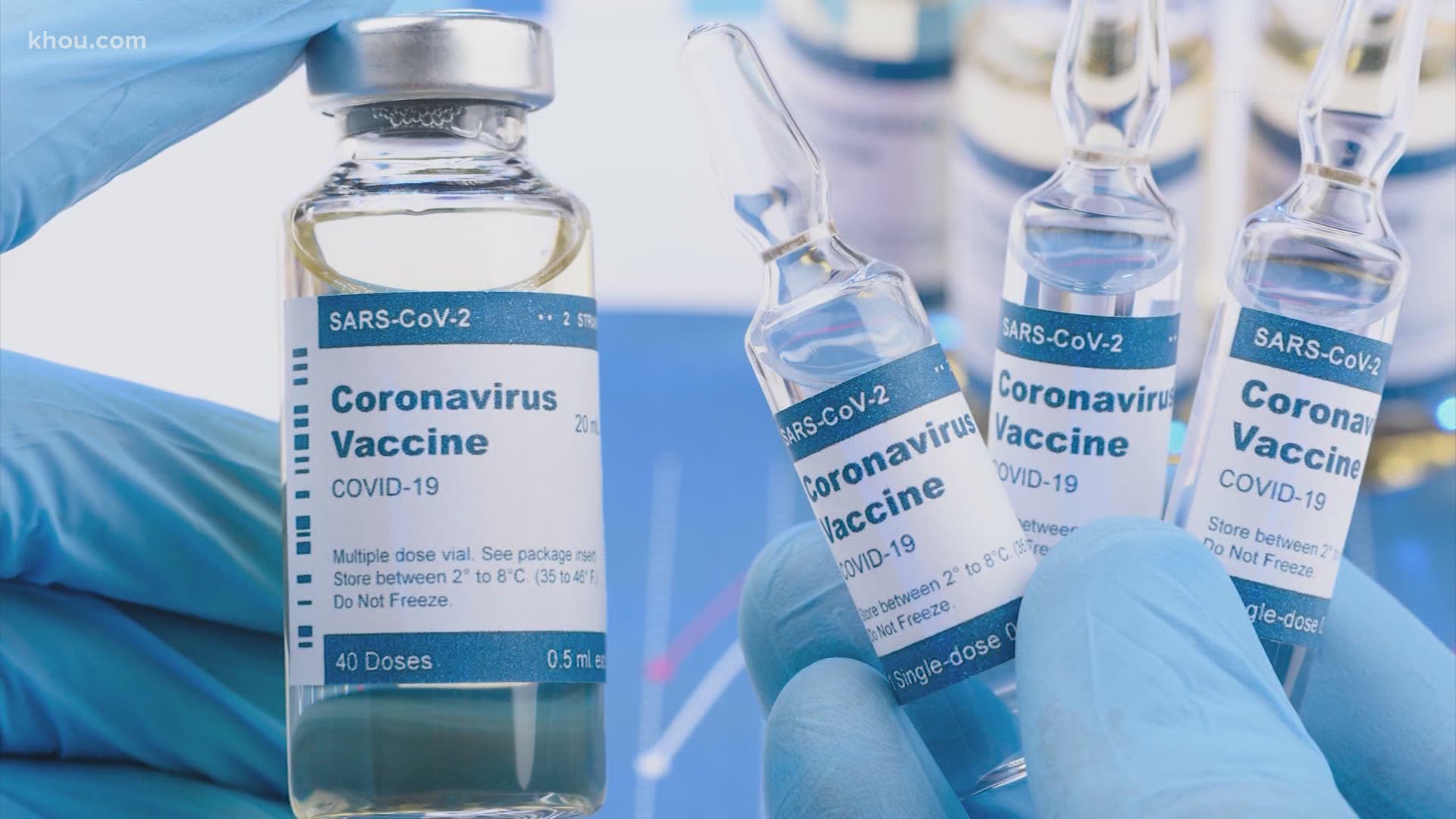HOUSTON — Scientists all over the world are working on a COVID-19 vaccine. As more news about the new vaccine comes out, we will have more questions about it.
Some that come to mind right away -- What is the vaccine supposed to do? How effective is it? Will it end the pandemic?
KHOU 11 asked these questions to Howard Koh, the Harvey V. Fineberg Professor of the Practice of Public Health Leadership at Harvard T.H. Chan School of Public Health.
How effective does the vaccine need to be for the FDA to approve it?
“The FDA put out a set of criteria saying that it had to be at least 50% effective,” Koh said. “The number for the Pfizer vaccine candidate is 90% is very, very good news.”
Koh said these are good preliminary findings.
“But the important caveat is we need all the data to come in,” he said. “We have to look at all the data ourselves and through the eyes of independent expert advisory committees and then make sure the FDA makes their decision based on the best science and also the best safety profile that we still haven't heard much about yet.”
What is a vaccine supposed to do?
“The hope would be that in the best-case scenario, it prevents death. It prevents serious complications. It prevents hospitalizations. It prevents illness,” Koh said.
In an email, Pfizer told KHOU 11, its first interim analysis found the vaccine candidate was more than 90% effective in preventing COVID-19 in people who had not previously been infected with the virus.
“We are following a careful, stepwise approach as we move down to younger age groups,” the director of global media relations for Pfizer wrote KHOU 11. “Pfizer has completed the planned controlled enrollment of the first 100 participants in the 12-15-year-old age group. This enrollment approach was previously agreed upon with the FDA and was designed to provide for the assessment of safety in a small group before enrolling additional participants.”
Studying the vaccine for children under 12 will require a new study, Pfizer said, and potentially a modified formula or dose schedule.
“To address the burden of disease in pediatric populations younger than 12, we are working actively with regulators on a potential pediatric study plan,” Pfizer wrote KHOU 11.
Does the vaccine mean no more masks and partying like before the pandemic?
“Here's one thing we do not want,” Koh said. “We do not want the FDA to authorize or approve of vaccine, and everyone says, ‘OK, we can just go back to normal and drop all the use of masks and social distancing and the hand hygiene, avoiding large crowds.’ We have to do this all together as a unified strategy until we can say that we've gotten this pandemic behind us.”
What will it take to control the pandemic?
“There was a global vaccine effort called COVAX that involves now over 150 countries,” Koh said. “The current administration announced that they would not participate in any of those global efforts. President-elect (Joe) Biden has announced that he wants to re-engage. If we focus only on the U.S. and do not consider the rest of the world, all we're going to do is assure that the disease keeps recurring here over and over again. So that's not the way to do it. From an informed public health point of view, we need to do this as a global community. And that's why the COVAX effort, which is trying to get some two billion doses available to the world by the end of next year, is a hugely critical effort for all of us to participate in and follow closely.”


